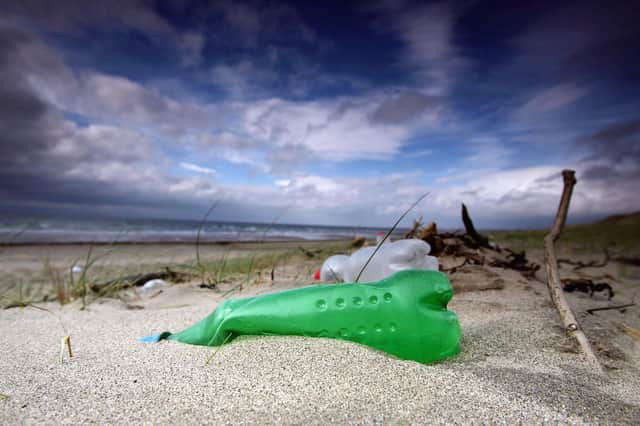Scotland's deposit-return scheme for drinks containers can work. But there's a real risk the current plan will fail – Anne Godfrey


The environmental case for the scheme, which rewards consumers with 20p for every container they return, is obvious and its success could be a game-changer for recycling and sustainability in Scotland. However, for this to work we must see a significant shift in industry collaboration and a fundamental change in consumer behavior
Each year, the UK gets through around 14 billion plastic bottles, nine billion aluminium and steel cans and 1.5 billion glass bottles. Shockingly, 75 per cent of the litter found on our streets is made up of drinks containers. Clearly, this position is unsustainable in the long-term.
Advertisement
Hide AdAdvertisement
Hide AdYet with low levels of consumer awareness and business readiness, there is a real risk that the scheme will fail before it even gets off the ground, unless action is taken now. Our research shows that more than 50 per cent of people in Scotland don’t know what DRS is and a third of businesses have never heard of the scheme. As we head into 2023, industry and government must increase collaboration to develop an approach that delivers simplicity and ease of use for all.
There are many challenges still to be overcome, some of which we are yet to begin addressing. Businesses across Scotland, including manufacturers and retailers, large and small, have raised their concerns about a number of key issues. From a lack of clarity on reverse-vending machine requirements for retailers, both online and in store, to issues of cross-border trade, fraud and reduced consumer choice, many concerns remain.
A lot has changed since the days of collecting and returning Irn-Bru bottles for the 30p deposit. Online shopping, changing consumer behaviour and cross-border trade have created a far more complex landscape. We also have far many more artisan suppliers, as well as major suppliers extending their ranges, giving consumers a greater level of choice than ever before.
As the business behind the everyday barcode and data standards, GS1 UK is well-placed to provide industry feedback and insight on the impact of the scheme. We represent more than 59,000 members in the UK, covering 90 per cent of the producers and exporters who will be affected by the introduction of the new scheme, from your high street giants and producers, though to small artisan businesses.
We believe that DRS in Scotland can be a success and lead the way for the rest of the UK, but only if the Scottish Government engages with industry and consumers to address these concerns. This joined-up approach must allow the Scottish scheme to interact with English and Welsh DRS schemes, in order to keep costs down and drive engagement.
Reassessing now to allow further work – with the Scottish Government working hand in hand with industry – will give us the best chance to launch a deposit-return scheme in Scotland that sets the pace for the rest of the UK and delivers real and lasting environmental benefits.
Anne Godfrey is chief executive of GS1 UK
Comments
Want to join the conversation? Please or to comment on this article.